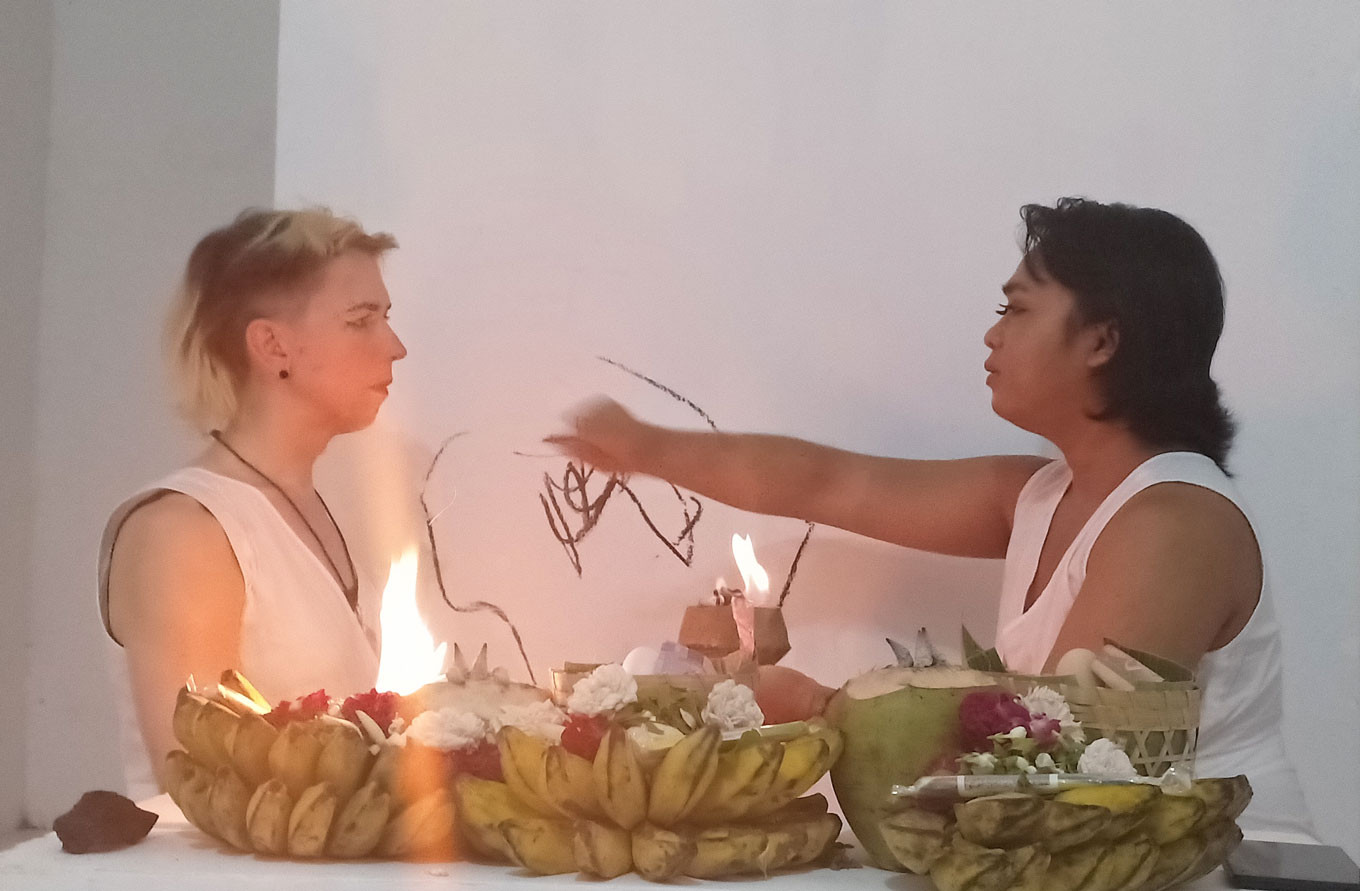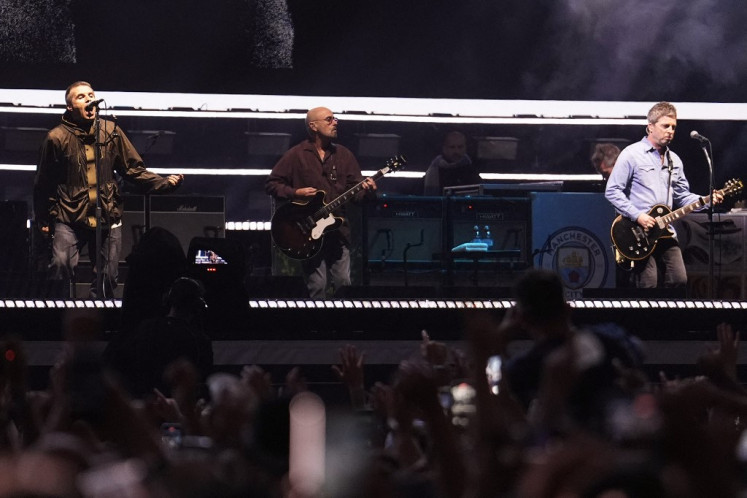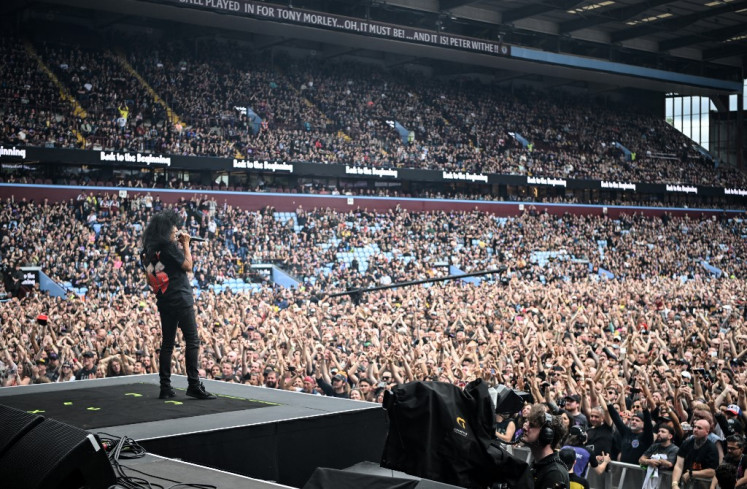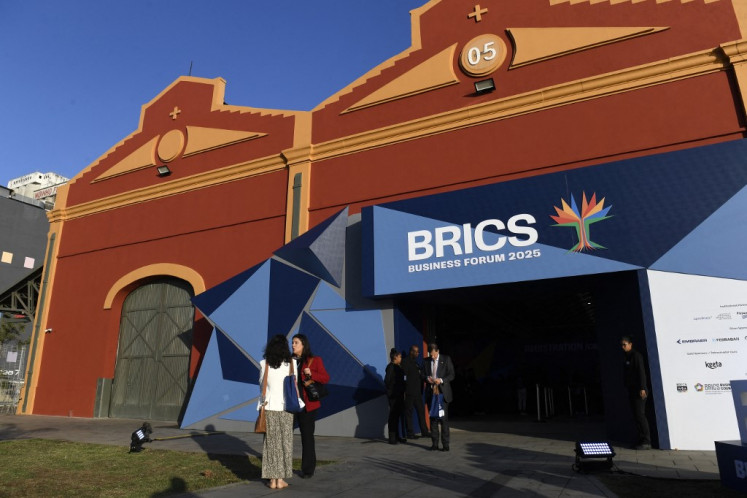Popular Reads
Top Results
Can't find what you're looking for?
View all search resultsPopular Reads
Top Results
Can't find what you're looking for?
View all search resultsTransgender artists trace origin of 'bissu' in South Sulawesi
A bissu-style ritual between Emma Frankland and Tamara Pertamina marked an end to their presentation and performance entitled "Calabai Jangeng, In Search of Our Trans Ancestors", which was recently held in Yogyakarta.
Change text size
Gift Premium Articles
to Anyone
T
wo transgender artists, Emma Frankland and Tamara Pertamina, sat facing each other behind a table full of coconuts, bananas, chicken eggs, roses and money for an offering as they performed a bissu-style ritual from South Sulawesi to pray for one another. Emma sang a song for Tamara while Tamara recited Al Fatihah, the first chapter of the Quran, for Emma.
Bissu is the gender-neutral identity in the Bugis tradition in South Sulawesi.
After praying for one another, Emma and Tamara, both dressed in white, took turns picking up a bowl designed to burn incense. They held it up to their faces and blew its smoke. Perfume incense immediately filled the small room inside Honf Citizen Laboratory in Yogyakarta.
"I pray for Emma because she is heading back to the UK," said Tamara, who is a performance artist.
The ritual marked an end to their presentation and performance entitled "Calabai Jangeng, In Search of Our Trans Ancestors", which was held on Jan. 21. Emma, accompanied by her young child Joey, along with Tamara, received a sponsorship from the British Council to visit and learn about bissu in South Sulawesi from Jan. 9 to 19.
Bissu was a highly respected leader in South Sulawesi from hundreds of years ago. Today, the term bissu usually refers to calalai (women who look like men) or calabai (men who look like women).
"Jangeng means crazy. That's what Bissu Eka from Segeri calls it, as told to us," Tamara said with a laugh, explaining the title of the performance.
Emma and Tamara used charcoal to explain the process of a cultural visit to South Sulawesi on the walls of Honf. On another side of the wall, Tamara drew a depiction of Yogyakarta with information about the suppression of the lesbian, gay, bisexual transgender and queer (LGBTQ) community in the region, while Emma drew a map of England that featured the dynamics of the LGBTQ movement in the country.
Read also: Dancer Didik Nini Thowok hopes to preserve cross-gender performance culture
Tamara said their visit to see bissu in Segeri, Sopeng, Wajo and Bone was part of a long project to study the history and traditions of LGBTQ people in Indonesia.
"We want to convey that LGBTQ is not an import from the West. In fact, we may influence the West because we have deep historical roots in this," Tamara said.
Tamara, a street singer and sex worker, has been researching LGBTQ issues in Indonesia for a few years now. After researching in South Sulawesi, she will look into such issues in other parts of Indonesia, such as Flores, Ponorogo, Banyumas and Aceh.
"Knowledge of history is important so that it does not become a source of conflict in the community and used as a political tool," Tamara said.
In South Sulawesi, Tamara and Emma saw and participated in a ritual ceremony led by a group of bissu, where they witnessed the community respecting the bissu, which were asked to lead the ritual.
"Transvestites can learn from the bissu; if they want to be respected they must have a respectable position, not just become street singers and sex workers. Life must change," Tamara added.
She said the bissu could act as a mediator to improve the quality of life.
Emma, who is also a theater and performance artist, said transgender people in the UK were also not fully respected by society.
"There are a lot of attacks from media and political lobby groups who don' t like the freedom of the transgender group," said Emma, who is the director of None of Us is Yet a Robot, an online and live performance company that creates projects based on transgender identities and the politics of transition.
She admitted her surprise in finding out that transgender bissu in South Sulawesi were highly respected by the community. Emma said she learned a lot about this matter and would explain the bissu story to the people in her country.
She also shared that there were many interesting questions from bissu who thought those like them only existed in South Sulawesi. They also wondered why Emma could have a biological child. When she was biologically a man, Emma had a child with a partner before transitioning. (liz/kes)










